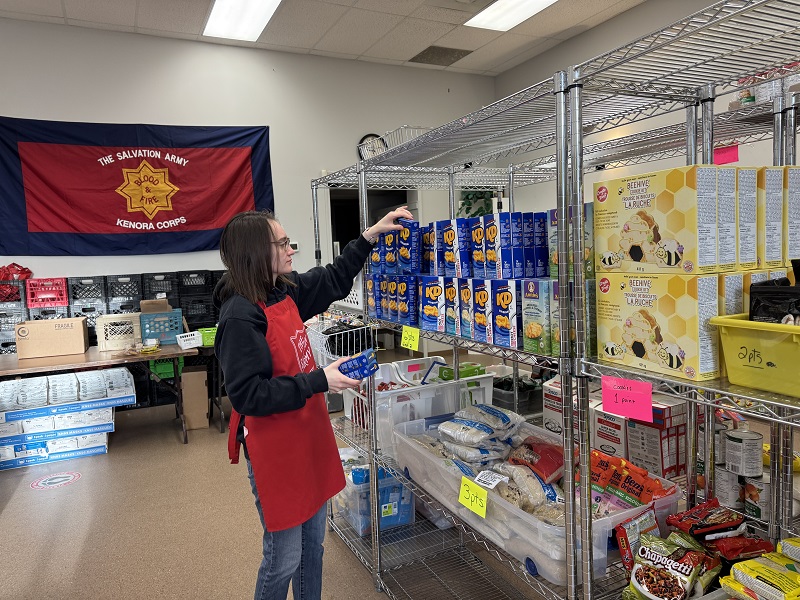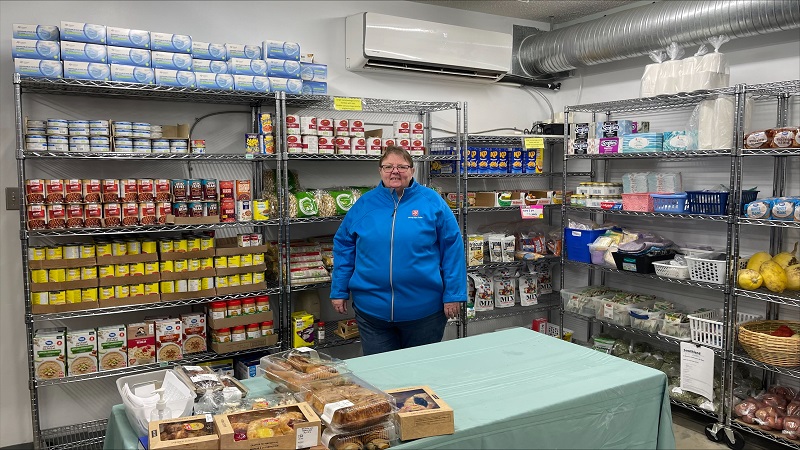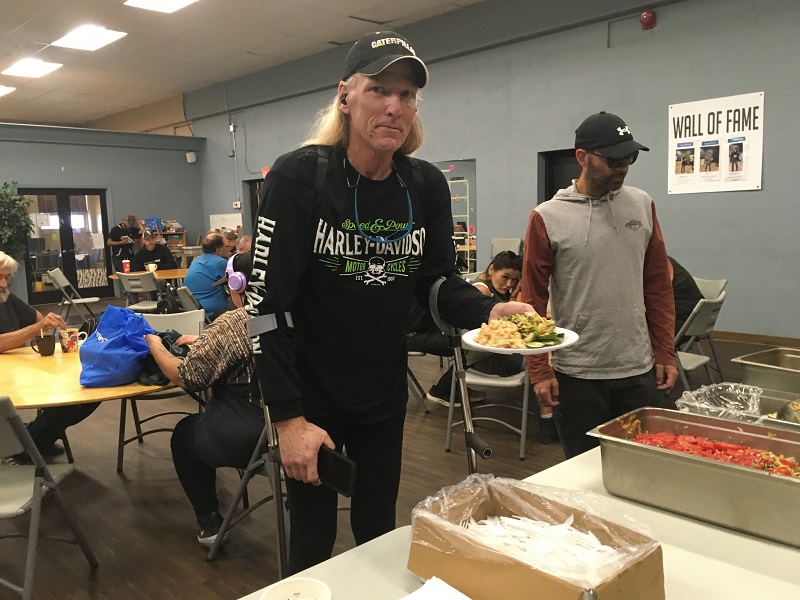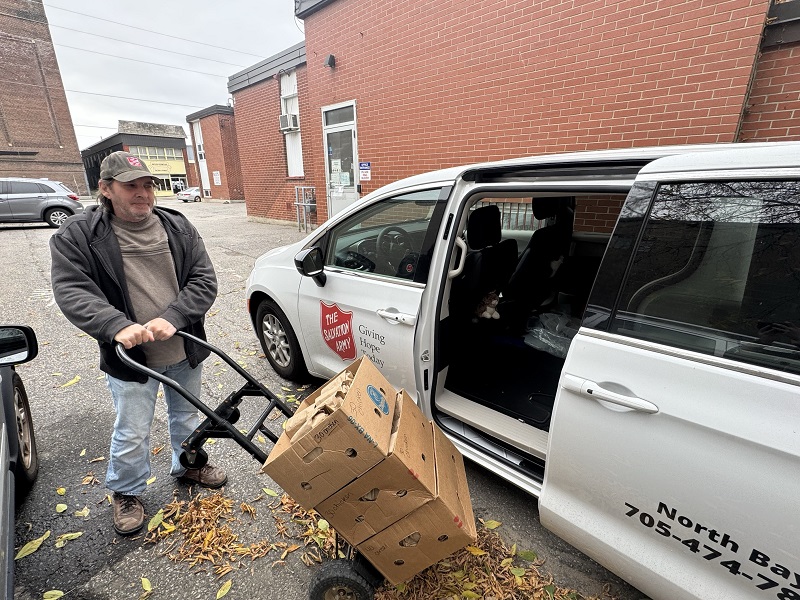Salvation Army Fights Food Insecurity During Challenging Times

The Salvation Army food bank in Kenora, Ont., is vital in helping residents who struggle with the rising cost of living. To maintain their excellent service, the food bank is seeking support from the community.
“We usually have nine clients per day, which could mean we provide food for 100 people a week,” says Community Ministries Director Stuart Walter. “Most of the people who come in for help are extremely grateful that we are there for them and that we can provide food.”
“A big part of the demand is the cost of living.”
Considering Kenora has a population of just 15,000, The Salvation Army is feeding about three percent of the city. Stuart says that while that percentage may not seem high, the cost associated with providing food for families in need adds up.
“A big part of the demand is the cost of living. Rent, utilities, gas, groceries… everything is going up. It’s costing everyone more to live, which means tough choices have to be made,” Stuart says.
For most of the food bank clients, the service is a necessity. Sean Teahan describes the relief food assistance provides for him.
“I started coming to this food bank probably around June. It’s been a tremendous lifesaver,” Sean shares. “I’m very grateful for the program, and more people need to know about it. I’ve had a good, positive experience.”
One of the challenges the food bank faces is keeping their shelves stocked. With prices increasing, everyone’s finances are affected including those who regularly contribute to the food bank.
Stuart says that to be able to help all their clients equally, they’ve had to reduce the number of times guests can come to the food bank each month.
“We want to make sure everyone has enough food, but at the same time, we need to ensure we have enough for everyone who needs help.”
While food donations are appreciated, the food bank considers specific needs, such as purchasing items for clients with food allergies. For this reason, monetary contributions are crucial for the smooth operation of the service.
“We need to ensure we have enough for everyone who needs help.”
“We have clients who are gluten or lactose intolerant, which means they can’t eat a lot of what we have on the shelves. When we know they’re coming in, we need to make sure they have food and that means going out to the store to buy things for them, and that adds up,” Stuart says.
Whether it is through volunteering or monetary donations, supporting the food bank makes all the difference in helping the city’s most vulnerable.
“I would encourage everyone to consider donating to your local food bank. It’s never just the people you expect to need help. It could be your next-door neighbour, the family of your son’s school friend, or your coworker,” Stuart says.
By Juan Romero




